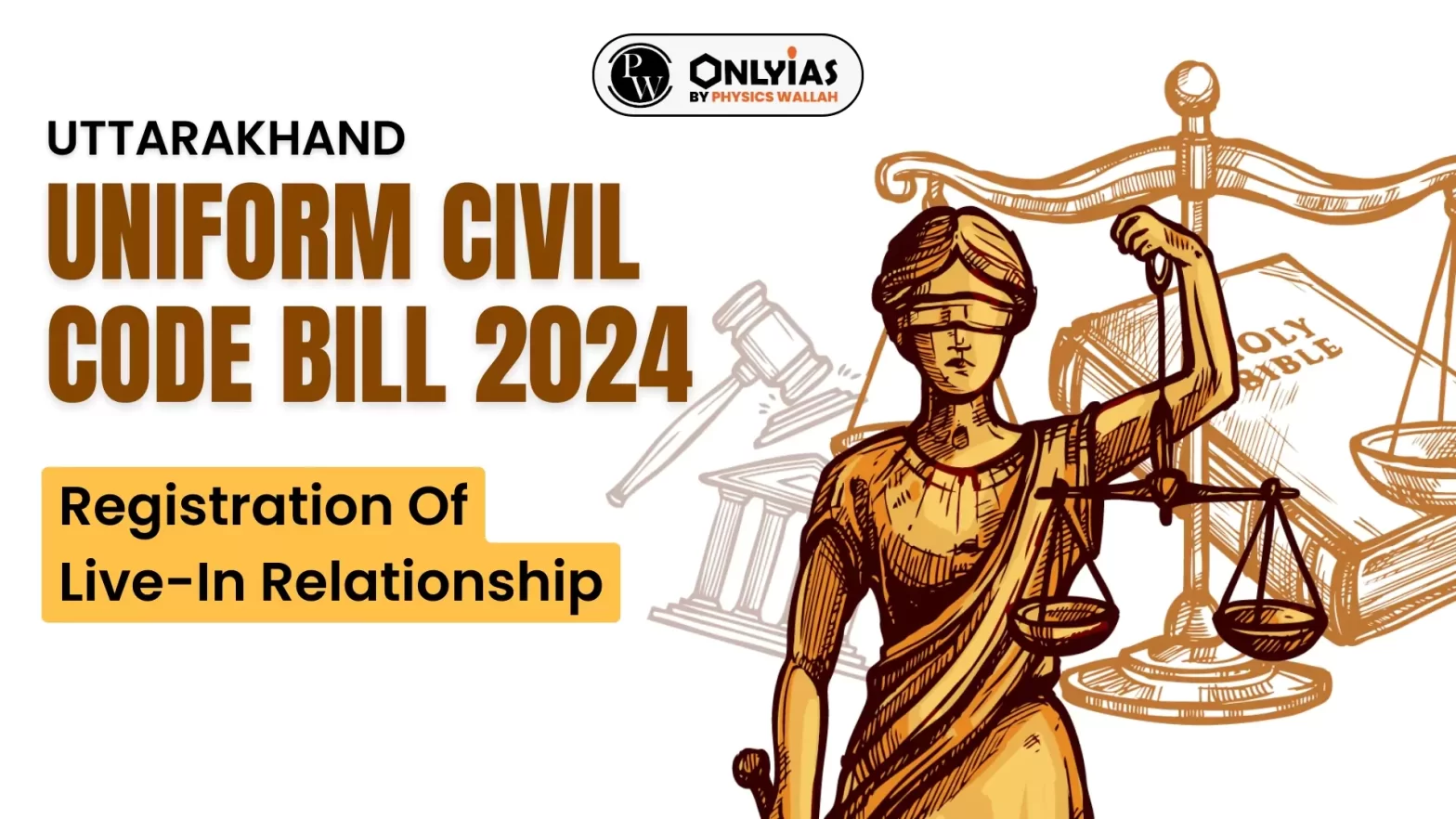![]() 26 Feb 2024
26 Feb 2024

This editorial is based on the news “Changing the growth paradigm” which was published in the Hindu. The Uttarakhand Assembly passed the Uttarakhand Uniform Civil Code Bill 2024, which purportedly consolidates a common law on marriage and property inheritance.
| Relevancy for Prelims: Uttarakhand UCC Bill 2024, Uniform Civil Code (UCC), and Fundamental Rights (Article 12-35).
Relevancy for Mains: Indian Constitution features, Basic Structure. |
|---|
Related Cases:
|
|---|
As per the writer, The State neglects to treat consenting adults as capable decision-making partners and it has successfully managed to usurp the most basic of human freedoms: the freedom to love.
| Prelims PYQ (2021):
‘Right to Privacy’ is protected under which Article of the Constitution of India? (a) Article 15 (b) Article 19 (c) Article 21 (d) Article 29 Ans: (c) |
|---|
| Must Read | |
| NCERT Notes For UPSC | UPSC Daily Current Affairs |
| UPSC Blogs | UPSC Daily Editorials |
| Daily Current Affairs Quiz | Daily Main Answer Writing |
| UPSC Mains Previous Year Papers | UPSC Test Series 2024 |

<div class="new-fform">
</div>